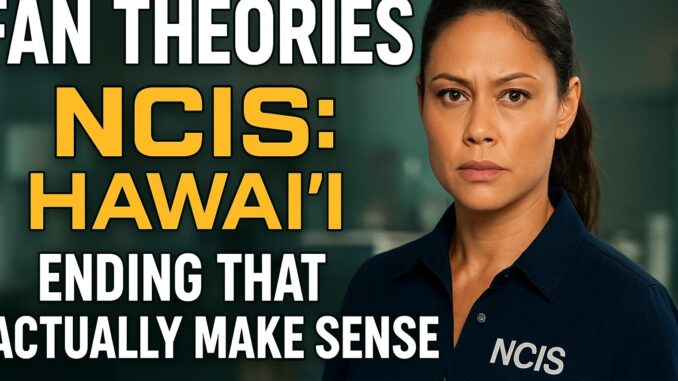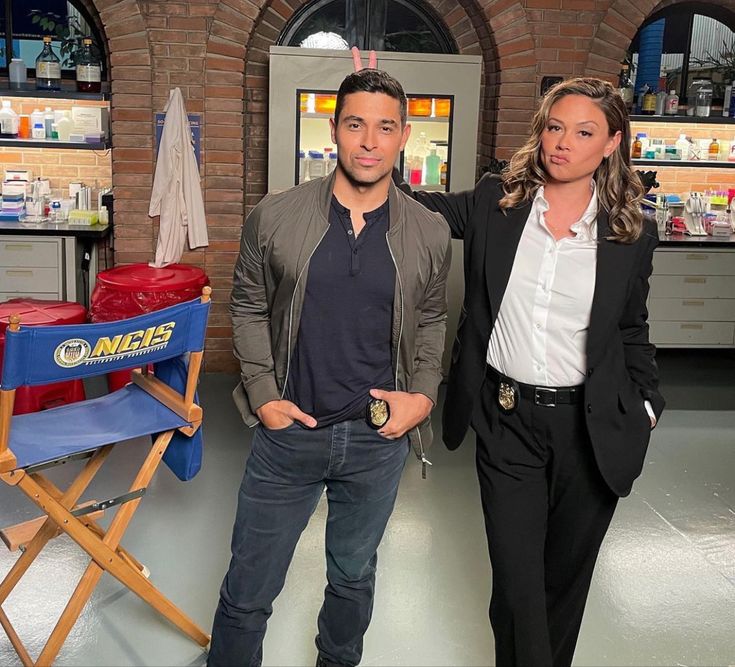
When NCIS: Hawai’i wrapped up its run, fans were left with more questions than answers. The finale was emotional, powerful, and—depending on who you ask—a little too open-ended. That open ending left room for dozens of fan theories, many of which are surprisingly logical and fit far better than you might expect.
In this deep-dive, we’ll explore the most convincing fan theories about the conclusion of NCIS: Hawai’i, break down why they hold weight, and reveal how they could shape the future of the NCIS universe. Let’s get into the details, the emotions, and the secrets hiding beneath the surface.
Why NCIS: Hawai’i’s Ending Sparked So Many Theories
The finale didn’t tie everything neatly into a bow. Instead, it left unresolved arcs, hidden clues, and lingering tension—perfect fuel for fan speculation. While other NCIS shows offer more definitive closures, NCIS: Hawai’i leaned heavily into subtle hints and emotional pacing. Fans noticed, and they’ve been dissecting every line and every look since.
The Most Believable Fan Theories About the Ending
1. Jane Tennant Is Being Set Up for a Major NCIS Crossover
Some fans believe Jane Tennant’s storyline ended the way it did for a strategic reason: to move her into a bigger role across the NCIS universe.
The Evidence
-
Her final scenes emphasize leadership and responsibility, much like Gibbs’ earlier setup.
-
Her connections with NCIS: Los Angeles and NCIS: Sydney characters feel intentional.
-
The unresolved tension with higher authorities hints that her story isn’t done—it’s expanding.
This theory makes sense considering CBS’ continued investment in the NCIS brand.
2. Lucy and Kate’s Future Was Left Open for a Potential Spinoff
The finale gives Lucy Tara and Kate Whistler closure, but intentionally vague closure. Fans think this was on purpose.
The Clues
-
Their relationship stabilizes without locking down a long-term outcome.
-
Fan support for this couple has been massive and consistent.
-
CBS often tests waters by leaving certain arcs slightly unfinished.
Could NCIS: Hawai’i give birth to a new LGBTQ-led procedural? Fans think so.
3. The Finale Was Designed as a “Soft Reboot” for the NCIS Franchise
Another theory suggests that the ending acts as a transition point to rejuvenate the larger NCIS narrative.
Why It Makes Sense
-
The introduction of new global threats points to a broader NCIS storyline.
-
Multiple agents from different offices are mentioned subtly.
-
Story threads about corruption at high levels seem too big for just one series.
Instead of an ending, fans think this was a handoff.
4. A Major Villain Will Return in a Future NCIS Crossover
Some viewers are convinced the finale’s criminal arc was left unresolved because the villain will return—likely in a different NCIS show.
Supporting Points
-
Several hints suggest deeper involvement beyond Hawai’i.
-
Dialogue references a larger conspiracy.
-
Loose ends remain intentionally frayed.
NCIS has done this with villains before. Why stop now?
5. The Team’s Fate Reflects Real-Life Military and Federal Bureau Dynamics
Many fans believe the ending mirrors real-world federal agent experiences—uncertain, shifting, and rarely tied up with a neat finale.
The Realism Factor
-
Not every operation gets closure.
-
Agents often get reassigned unexpectedly.
-
Bureaucracy shapes careers more than we realize.
The finale’s authenticity resonates with viewers who prefer grounded storytelling.
Deeper Interpretations Fans Believe Are Hidden in the Ending
6. The Ending Symbolizes the Future of the NCIS Brand
The last episode focuses heavily on mentorship, teamwork, and transition—mirroring the evolution of the broader franchise.
A Passing of the Torch?
Fans think Tennant’s final moments act as a metaphor for NCIS itself evolving, expanding, and redefining its legacy.
7. Boone’s Arc Suggests a Comeback in Another NCIS Show
Kai Holman and Jesse Boone’s futures are left open, sparking theories that at least one of them will reappear.
The Backstory
-
Their skills are versatile.
-
Their arcs feel incomplete.
-
Other NCIS series have absorbed characters before.
It wouldn’t be the first time the franchise “transfers” one of its best agents.
8. Tennant Was Preparing to Take Over an International Task Force
A surprising but popular theory argues that the ending hints at Jane moving beyond U.S. soil.
The Evidence Fans Cite
-
Numerous references to foreign intelligence agencies.
-
Bigger global threats introduced in the later episodes.
-
A sense of unfinished international business.
Jane Tennant leading a global NCIS initiative? Fans would absolutely show up for that.
Character-Based Fan Theories That Actually Hold Weight
9. Whistler’s Career Move Sets Up Her Own Federal Arc
Kate Whistler’s character is portrayed as sharp, capable, and ambitious. Fans believe her ending is the first step toward a bigger storyline.
Why Fans Believe It
-
She’s one of the most complex agents in the series.
-
Her skillset fits perfectly with future NCIS crossovers.
-
The ending opens opportunities without closing doors.
10. Jane’s Final Look Indicates Internal Struggle and Future Conflict
In the last moments, Tennant shows a subtle expression that fans have obsessed over. They believe it reveals a deeper internal conflict.
Possible Interpretations
-
She knows something she isn’t sharing.
-
Her next move is dangerous but necessary.
-
The writers planted a seed for future storytelling.
It’s a theory rooted in character analysis—and it works.

11. Kai Holman Is Being Set Up for a Redemption Arc Outside Hawai’i
Some fans noticed Kai’s storyline felt like Act 2, not a finale.
Why This Fits
-
He struggled with identity and responsibility.
-
His relationships weren’t fully resolved.
-
He’s a character built for long-term development.
A redemption arc elsewhere would be the perfect continuation.
Plot-Based Theories Fans Won’t Let Go
12. The Conspiracy Within the Government Was Never Meant to End
The show ends on a note suggesting deeper corruption. Fans think this storyline was intentionally left open.
Supporting Arguments
-
The conspiracy escalates but never concludes.
-
Multiple characters express distrust.
-
Too many questions remain unanswered.
This is fertile ground for a future NCIS storyline.
13. The Team Isn’t Finished—They’re Just Being Restructured
Rather than disbanded or finished, fans think the ending hints at internal restructuring.
The Logic
-
The unit isn’t dissolved, just shifted.
-
New leadership possibilities emerge.
-
Agents receive ambiguous upgrades.
NCIS teams don’t usually get sunsetted—they evolve.
14. A Time Jump Was Originally Planned
Some believe the writers meant to include a time jump but were forced to pivot due to cancellation.
Why This Theory Exists
-
Several narrative setups point to long-term change.
-
Character arcs begin transitions without finishing them.
-
The pacing feels like a mid-season arc, not a series finale.
Fans think a time jump would’ve resolved everything.
15. The Ending Was a Message: The Team’s Story Isn’t Over
The final—and most popular—fan theory suggests the open ending was intentional to show that life goes on, even if the cameras stop rolling.
Why Fans Love This Theory
-
It honors the team’s legacy.
-
It avoids cheap finality.
-
It gives each character room to grow off-screen.
It’s emotional, hopeful, and deeply fitting.
Conclusion
NCIS: Hawai’i didn’t give fans the tidy ending they expected—but sometimes that’s exactly what makes a finale memorable. The subtle clues, character choices, and unresolved plots have inspired a wave of fan theories that feel surprisingly convincing. Whether the writers intended it or not, the finale keeps the door wide open for crossovers, spin-offs, or future returns to the Hawaiian office.
And that’s the magic: the story may have ended, but the possibilities haven’t.
